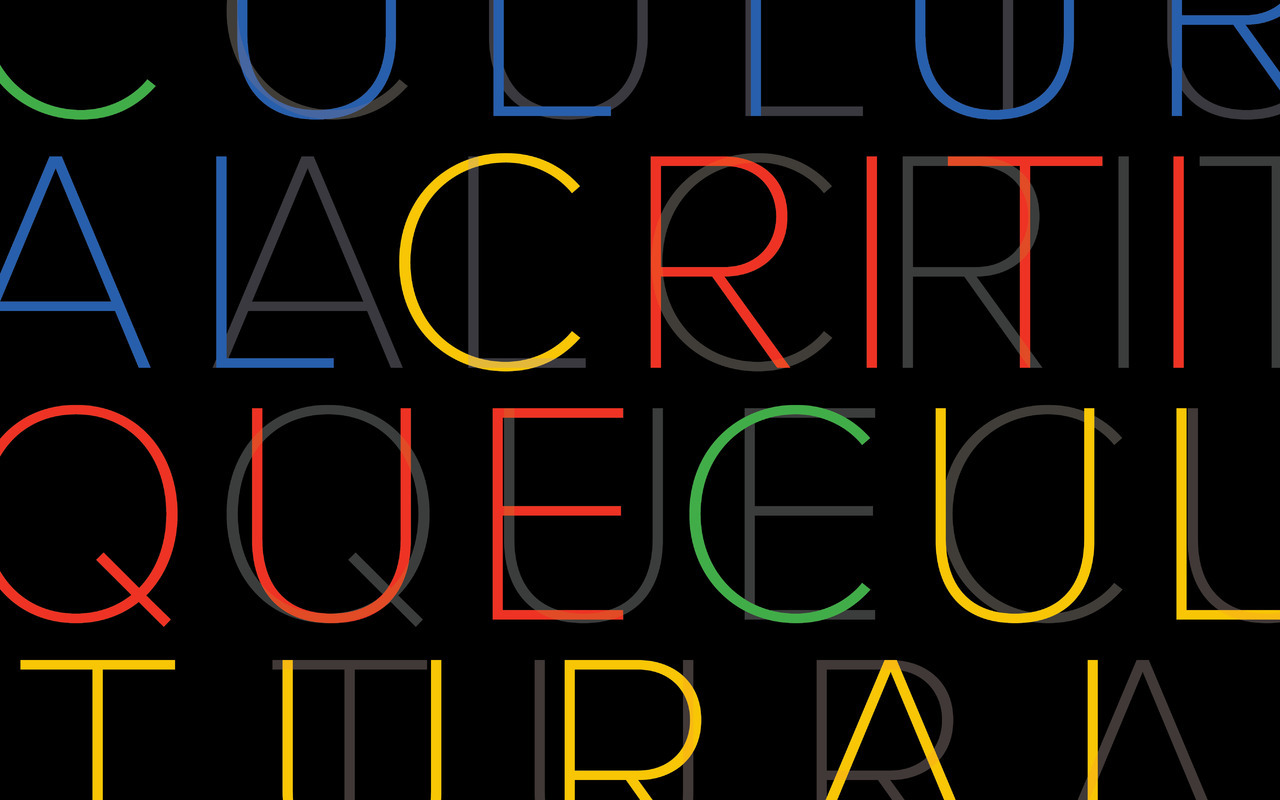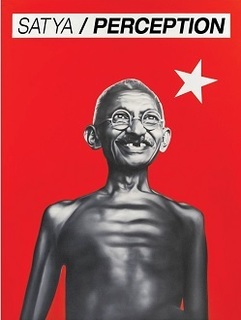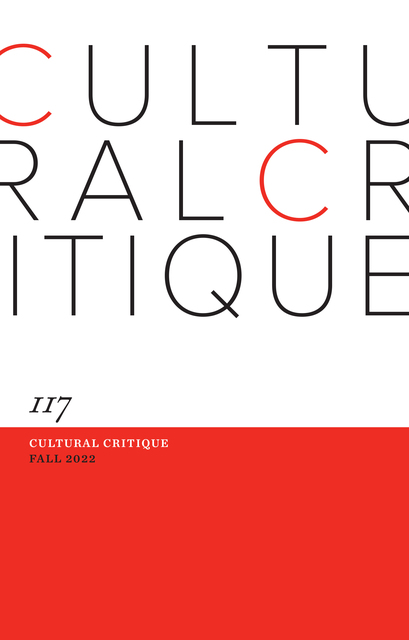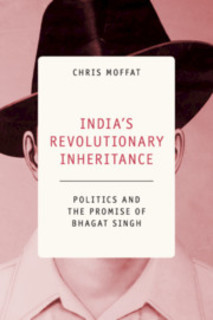
Cultural Critique Online
Issue 117, Frame 2
Welcome to Cultural Critique Online, the open-access online section of Cultural Critique. This journal provides a forum for creative and provocative scholarship in the theoretical humanities and humanistic social sciences. Transnational in scope and transdisciplinary in orientation, the journal strives to spark and galvanize intellectual debates as well as to attract and foster critical investigations regarding any aspect of culture as it expresses itself in words, images, and sounds, across both time and space. The journal is especially keen to support scholarship that engages the ways in which cultural production, cultural practices, and cultural forms constitute and manifest the nexus between the aesthetic, the psychic, the economic, the political, and the ethical intended in their widest senses. While informed by the diverse traditions of historical materialism as well as by the numerous critiques of such traditions from various parts of the globe, the journal welcomes contributions based on a variety of theoretical-methodological paradigms. Cultural Critique Online on Manifold expands Cultural Critique’s existing web presence to include new open-access book reviews, short articles, interviews, and more.
Cover design by Jeenee Lee
Texts
Reviews
- This text has 0 annotations
- This text has 9 highlights
- This text has 0 annotations
- This text has 0 highlights
Cultural Critique Books

Book launch and panel for “The Rhythm of Images: Cinema Beyond Measure,” by Domietta Torlasco
Maggie Hennefeld, Cesare CasarinoPanelists Tom Conley, Akira Mizuta Lippit, John Mowitt, Tiziana Terranova, and Amy Villarejo join author Domietta Torlasco to discuss “The Rhythm of Images: Cinema beyond Measure,” the latest title from the Cultural Critique Books series with University of Minnesota Press. Moderated by Cultural Critique editors Cesare Casarino and Maggie Hennefeld.
- This text has 0 annotations
- This text has 0 highlights
Essay

Revisiting Non-willing Freedom: How Gandhi Matters Today
Ajay SkariaAlready in his own time, and ever more so in the last four or decades, Gandhi’s politics have been subjected to powerful critiques from the left. While many of these critiques are entirely correct, they can, if made too quickly, also obscure from us what is most radical about Gandhi—the way he questioned a will-centered politics. Such a questioning remains indispensable for a left and democratic politics today, even it must necessarily proceed by relinquishing many of Gandhi’s specific formulations and positions. Thinking with Gandhi, this essay addresses four questions: what is a politics that affirms the will of the people? What is distinctive about “parliamentary swaraj” as a form of will-centered politics? What would be involved in a politics that relinquishes the will? Finally, what is the relation between these two politics—between the politics that affirms the will and the one that relinquishes the will.
- This text has 0 annotations
- This text has 0 highlights
Metadata
- container title
- issn1534-5203
- publisherUniversity of Minnesota Press
- publisher placeMinneapolis, MN
- restrictionsAll rights reserved. No part of this publication may be reproduced, stored in a retrieval system, or transmitted, in any form or by any means, electronic, mechanical, photocopying, recording, or otherwise, without the prior written permission of the publisher.
- rightsCopyright 2022 by the Regents of the University of Minnesota
- rights holderRegents of the University of Minnesota




